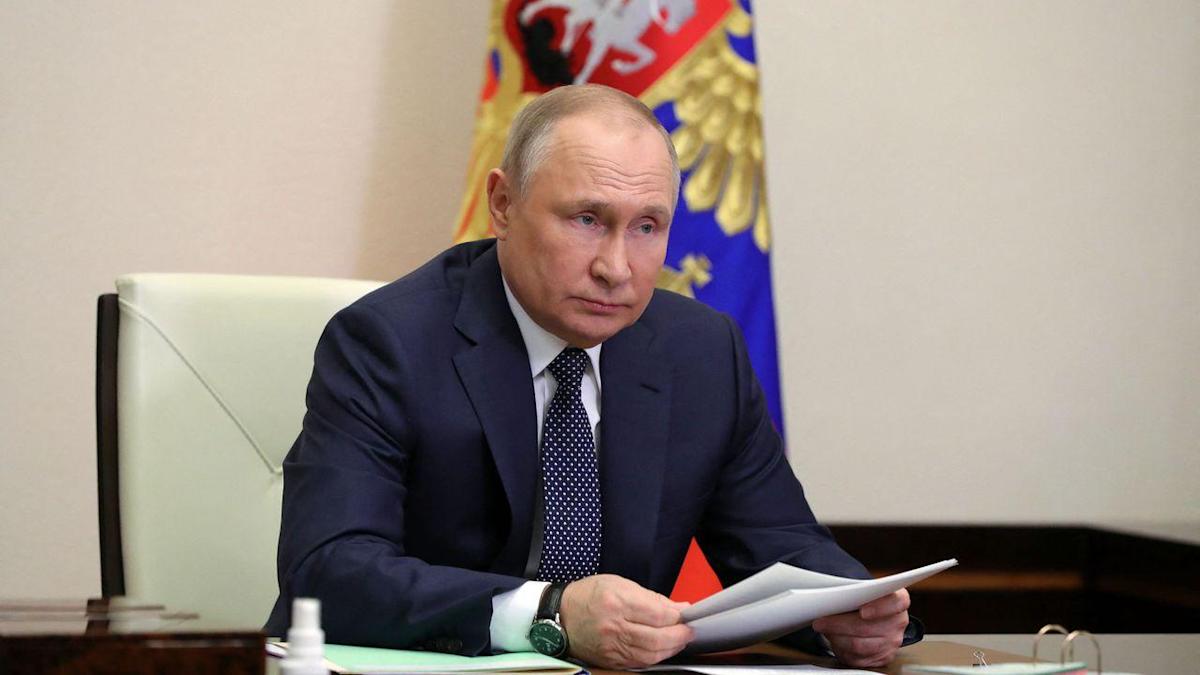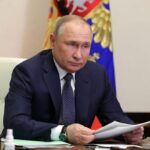
Russian President Vladimir Putin threatened on Thursday to cut gas exports to countries that do not open a ruble account with a Russian bank starting April 1, according to Reuters.
Why it matters: Russia holds significant leverage over some European countries because it is the source for a large percentage of their natural gas supplies, and any disruption to gas exports would make Europe’s energy crisis much worse.
Stay on top of the latest market trends and economic insights with Axios Markets. Subscribe for free
-
Russia’s natural gas flows have thus far continued despite overwhelming Western sanctions, though that’s largely because its oil and gas exports were one way it could contain the financial fallout of the sanctions.
-
Germany initiated the first steps of an emergency energy plan on Wednesday to preempt a potential disruption or halt in gas supplies from Russia. It imports more than 50% of its natural gas and coal from Russia.
-
Further economic turmoil in Europe that could strain the unity that the West has shown in its stance toward Russia so far over Moscow’s invasion of Ukraine.
Between the lines: According to a decree signed by Putin Thursday, foreign buyers will have to open accounts in Russia’s state-controlled Gazprombank, Bloomberg reports.
What they’re saying: “In order to purchase Russian natural gas, they must open rouble accounts in Russian banks. It is from these accounts that payments will be made for gas delivered starting from tomorrow,” Putin said.
-
“If such payments are not made, we will consider this a default on the part of buyers, with all the ensuing consequences. Nobody sells us anything for free, and we are not going to do charity either — that is, existing contracts will be stopped,” he added.
The payment scheme is in part an effort to create demand for the ruble, which collapsed from Western sanctions over Moscow’s invasion though recently rebounded.
-
Current and former Treasury officials, foreign exchange traders and sanctions experts told Politico this week that the ruble’s rebound doesn’t necessarily mean that sanctions aren’t working but could be the result of the extraordinary measures Russia has taken to prop up the currency.
-
In response to its crash, the Kremlin raised interest rates, halted currency trading and demanded that Russian companies exchange their foreign earnings for rubles.
The big picture: Russia’s invasion has further motivated European countries to become independent from Russian fossil fuels.
-
Western officials have warned for years that the Kremlin could use its exports to put pressure on political leaders to weaken sanctions placed on Russia for its military campaigns.
-
The U.S. has vowed to help the continent reduce reliance, in part by expanding U.S. LNG exports to Europe.
Go deeper: Unpacking Biden’s European energy plan
Like this article? Get more from Axios and subscribe to Axios Markets for free.




